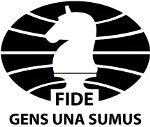Fair play as a value in sport and at school
by Dr. Uvencio Blanco Hernández

The concept of fair play
Since the very birth of Olympism, the expression “fair play” has been used to define honesty and integrity in competition. Fair play is manifested by the acceptance without discussion of the referee’s decisions, except in sports where the rules authorise an appeal. The will to play to win, the first and essential objective, and the firm refusal to win at any price. Educators and sportsmen and women must understand that fair play is a concept of a strictly sporting nature.
The concept of Olympism was born in Greece in 776 B.C. with the creation of the Ancient Olympic Games. Twenty-three centuries later, in the middle of the 19th century, English educators invented “modern sport”, which soon became so popular throughout the world, the idea that it should be practised in a spirit of loyalty was already implicitly contained in its action.
The expression “fair play” soon came to be used to define the honesty and integrity of the competition. Since then, all those who have analysed the sporting phenomenon, in particular Pierre de Coubertin, founder of the International Olympic Committee, have praised fair play and have closely associated its essential elements with the practice of sport: honour, respect for oneself and for others.
It should be noted that as early as 1914, Georges Demeny argued that “the sportsman who has a spirit of sacrifice, follows a straight path and will never commit an act of baseness for which he can be reproached; he is the accomplished gentleman, a sort of modern gentleman who contributes greatly to the prosperity and greatness of his country”.
In the Appendix to the Fair Play Manifesto, a text published in 1964 by the International Council of Physical Education and Sport, we read: “When in the 19th century English educators invented “modern sport”, which was soon to become so popular throughout the world, the idea that it should be practised in a spirit of loyalty was already implicitly contained in their action. And very soon the expression “fair play” came to be used to define the honesty and integrity of the competition.
Since then, all those who have analysed the sporting phenomenon, notably Pierre de Coubertin, founder of the International Olympic Committee, have praised fair play and have closely associated its essential elements with the practice of sport: honour, respect for oneself and for others.
Unfortunately, as a result of the increasing emphasis on victory, competitive sport has undergone changes in recent years which have seriously affected the very foundation of fair play. 10 April is “World Fair Play Day”.
A strictly sporting concept
The concept of fair play is the interpretation of the term fair play, which means “fair play”, which in turn means “respect and recognition” of the technical rules and regulations (written or unwritten), of an ethical and moral nature that underlie them. Moreover, its values are inspired by the Olympic Spirit.
The Code of Sports Ethics considers sport as a socio-cultural activity that enriches society and friendship between nations, provided it is practised with loyalty.
Article 6 of the Code states that “fair play” means much more than simply respecting the rules: it encompasses the concepts of friendship, respect for one’s opponent and sportsmanship. It is more than behaviour, it is a way of thinking. The concept extends to the fight against cheating, against the art of cheating without breaking the rules, against doping, physical and verbal violence, inequality of opportunity, excessive commercialisation and corruption.
The Code considers sport as a socio-cultural activity that enriches society and friendship between nations, provided it is practised with loyalty. Accordingly, fair play implies modesty in victory, serenity in defeat and generosity sufficient to create warm and lasting human relationships.
Fair play is manifested by:
– Acceptance without discussion of the referee’s decisions, except in sports where the rules authorise an appeal.
– The will to play to win, the first and essential objective, and the firm refusal to win at any price.
– Respect for the rules and the spirit of the game.
Furthermore, the concept of fair play is based on the principle of equality. This idea is built on the principle of equality; equality of conditions in competition and, fundamentally, respect for human beings, whatever their role in the act of sporting competition and in the environment in which it takes place and develops.
Source:
“Juego limpio contra el dopaje en el deporte” (Blanco, U. 2004)
“Dopaje y trampas en el ajedrez” (Blanco, U.). Obra S/P

